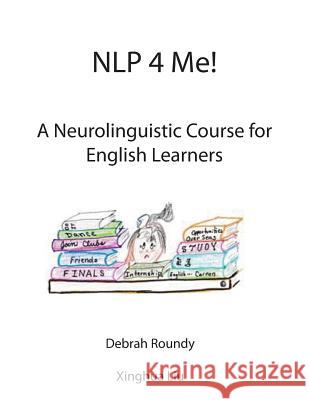NLP 4 Me! A Neurolinguistic Course for English Learners » książka
NLP 4 Me! A Neurolinguistic Course for English Learners
ISBN-13: 9781907962851 / Angielski / Miękka / 2015 / 288 str.
A Neurolinguistic Course for English Learners is the first ever book written about Neurolinguistic Programs (NLP) for college students in China and possibly in the world. As an NLP innovator and program developer, I have developed this text book to enhance the skills of English acquisition through the use of NLP programs and skills. The text book and course include reading, writing, listening, comprehending and speaking English skills. Students who complete the course with a certified NLP trainer, will complete the Practitioner Level of certification. Skills presented in the book include but are not limited to the core process, Circle of Excellence, TOTE model, Logical Level Alignment, Eye Accessing Cues, the Meta Model and more. Native of Idaho in the USA, Prof. Debrah Roundy graduated from the University of Idaho with a M.Ed. and from NLPU as an NLP Master Trainer and Consultant (2009) and a facilitator and transformational entrepreneur (2014). She has been a teacher, special education teacher, a developmental specialist, a school consultant and a Neurolinguist teacher, developer and coach. Her research interest is curriculum development and she created much of the curriculum used in her classroom. She has written a book on Neurolinguistic Programs for special needs and elementary school children called "NLP 4 Me ." Debrah currently works at Tongji University as a Foreign Language Expert with BYU China Teacher's Program in Shanghai, China and as such is titled a professor as an honorary title. Debrah is the first person as far as we know who has brought NLP to college students in China and the first person who has used NLP as a way to acquire and enhance English Speaking skills. Dr. Xinghua Liu works as a Lecturer in Applied Linguistics at Shanghai Jiao Tong University, China and is the Chief Editor of TESOL International Journal (www.tesol-international.com). His research interests include second language writing, corpus linguistics and systemic functional linguistics.











